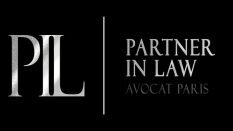Best Nonprofit & Charitable Organizations Lawyers in Paris
Share your needs with us, get contacted by law firms.
Free. Takes 2 min.
List of the best lawyers in Paris, France
About Nonprofit & Charitable Organizations Law in Paris, France
Nonprofit and charitable organizations play a crucial role in French society by addressing various social, cultural, and environmental needs. In Paris, like the rest of France, these organizations are typically formed under the 1901 Law on Associations, which allows for the establishment of both associations and foundations with specific non-profit aims. This legal framework regulates the formation, administration, and dissolution of nonprofits, providing them with a structured pathway for recognizing and coordinating their activities in pursuit of public benefit or mutual interests.
Why You May Need a Lawyer
Working with legal professionals can be vital at numerous stages in managing a nonprofit organization in Paris. You may need legal advice when:
- Setting up a new organization to ensure compliance with legal registration requirements.
- Drafting and reviewing statutes and bylaws to align with your mission and legal obligations.
- Handling tax-related issues, including obtaining tax-exempt status.
- Navigating employment laws if you are working with paid staff or volunteers.
- Facilitating mergers, partnerships, or other organizational changes.
- Addressing disputes, whether internal or external, that could affect your operations.
Local Laws Overview
Paris, as the capital city of France, abides by the national laws governing nonprofit organizations, particularly the Law of 1901 for associations and the Law of 1987 for foundations. Key legal aspects to consider include:
- Legal Definition: Associations must pursue non-profit activities and may be for mutual benefit without direct financial gain.
- Registration: Nonprofits must register with the local prefecture and public declaration is necessary to obtain legal capacity.
- Statutory Requirements: Membership, governance, and operational objectives must be clearly defined in the statutes.
- Taxation: Certain nonprofits can benefit from tax exemptions but need to comply with strict criteria to obtain and maintain this status.
- Dissolution Procedures: Defined processes exist for legally dissolving an association, including addressing debts and honoring obligations.
Frequently Asked Questions
How do I start a nonprofit organization in Paris?
To start a nonprofit in Paris, you need to choose a legal form (usually an association), draft statutes along the principles of the 1901 Law, and register with the prefecture. This includes a public declaration through official publication in the Journal Officiel.
What are the benefits of forming a nonprofit organization?
Nonprofits can access various benefits, including potential tax exemptions, eligibility for public and private funding, membership participation, and contributing positively to the community.
Are there specific reporting requirements for nonprofits?
Yes, nonprofits must maintain accurate financial records, report on activities, and, depending on their size and funding source, provide annual reports to members and administrative authorities when necessary.
Can nonprofits in Paris employ staff?
Yes, nonprofit organizations can employ staff and must adhere to French labor laws, including employment contracts, social security contributions, and compliance with workplace regulations.
Do nonprofits need to pay taxes in France?
While some activities may be tax-exempt, others may be subject to taxation, and it is crucial to assess financial activities in consultation with a legal advisor to ensure compliance and optimize potential tax benefits.
How can a nonprofit organization raise funds legally?
Nonprofits can raise funds through donations, grants, and the organization of events, but must comply with regulations governing fundraising activities, including transparency and proper accounting.
What is the role of the board of directors in a nonprofit?
The board of directors is responsible for strategic oversight, ensuring the organization's mission aligns with activities, legal compliance, and financial integrity, among others.
Can a nonprofit be involved in political activities?
Nonprofit organizations in France must remain politically neutral, particularly to maintain tax-exempt status, and cannot participate in campaigns for elections or endorse political parties.
How is a nonprofit organization dissolved?
An organized dissolution requires board approval, settling of debts, liquidation of assets in adherence to statutory norms, and official notification to authorities.
What happens if a nonprofit does not comply with legal requirements?
Noncompliance can result in penalties, fines, loss of tax-exempt status, or mandated dissolution. Engaging legal assistance can be crucial in efficiently resolving noncompliance issues.
Additional Resources
For additional support, consider consulting the following:
- Ministry of Interior: Oversees association registration and compliance.
- Centre Francais des Fonds et Fondations (CFF): Provides guidance for foundations in France.
- Associations & Territoires: Offers resources and support for local associations.
Next Steps
If you find yourself facing legal challenges or uncertainties in managing or establishing a nonprofit organization, consider the following steps:
- Consult with a legal advisor specializing in French nonprofit law to understand your specific obligations and rights.
- Engage with local advocacy groups or professional networks for additional support and shared experiences.
- Stay informed on policy changes by following updates from relevant governmental bodies.
Lawzana helps you find the best lawyers and law firms in Paris through a curated and pre-screened list of qualified legal professionals. Our platform offers rankings and detailed profiles of attorneys and law firms, allowing you to compare based on practice areas, including Nonprofit & Charitable Organizations, experience, and client feedback.
Each profile includes a description of the firm's areas of practice, client reviews, team members and partners, year of establishment, spoken languages, office locations, contact information, social media presence, and any published articles or resources. Most firms on our platform speak English and are experienced in both local and international legal matters.
Get a quote from top-rated law firms in Paris, France — quickly, securely, and without unnecessary hassle.
Disclaimer:
The information provided on this page is for general informational purposes only and does not constitute legal advice. While we strive to ensure the accuracy and relevance of the content, legal information may change over time, and interpretations of the law can vary. You should always consult with a qualified legal professional for advice specific to your situation.
We disclaim all liability for actions taken or not taken based on the content of this page. If you believe any information is incorrect or outdated, please contact us, and we will review and update it where appropriate.















